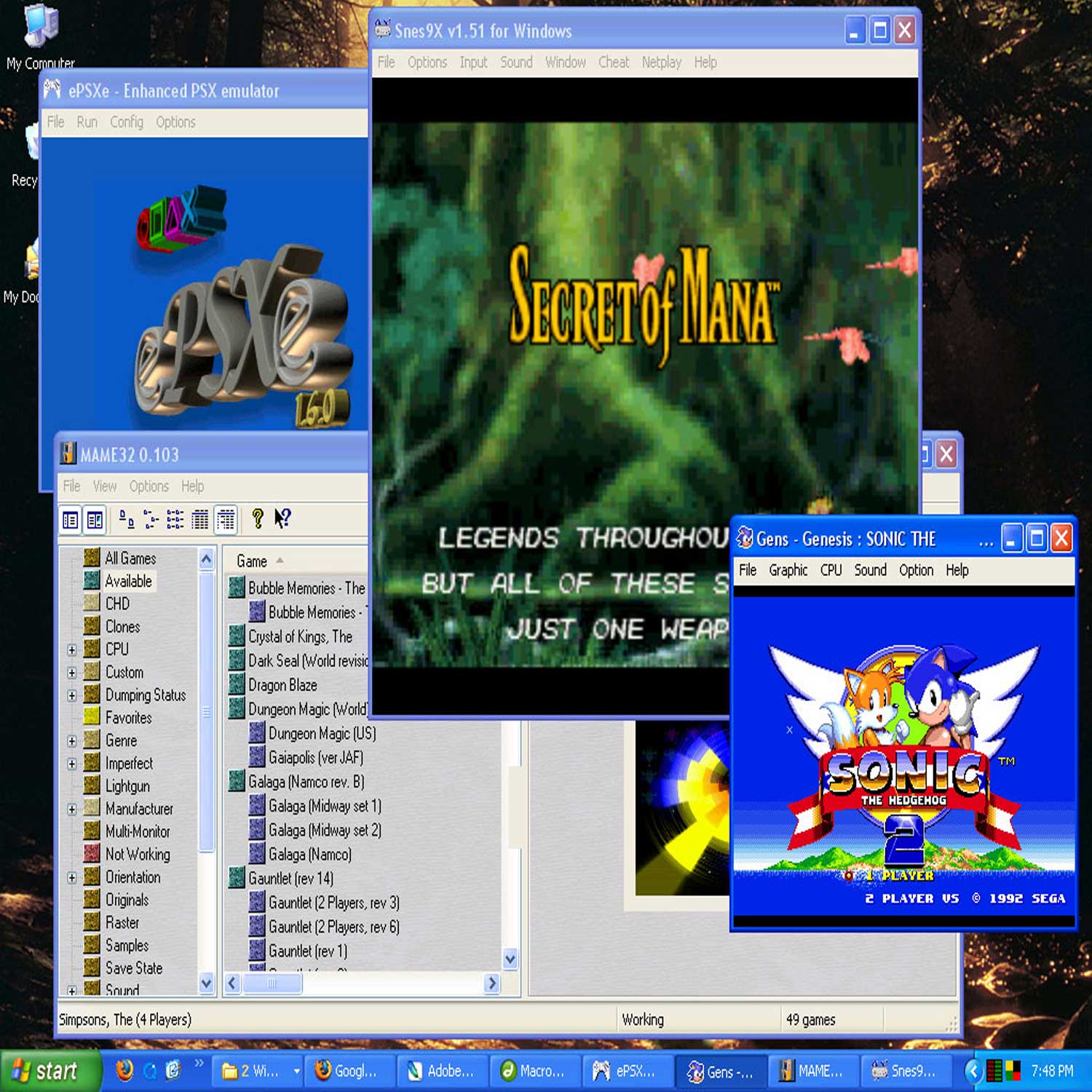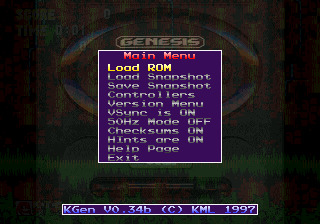

Robotnik's Mean Bean Machine on an emulator, but have powerful enemies at Sega, be careful.
#Sega games emulator ps3
Of course, the likelihood of your getting into trouble declines according to how old the system you're emulating is - Sega is probably going to care less about a Mega Drive emulator than Sony did about the PS3 hack when its console was still current-gen - but legally they're one and the same. How else are you going to play the original Kirby's Adventure? So, yes, in theory they could go after consumers, but in practice that seems to have fallen out of favor as a strategy - and rightly so." Digital preservationīut it's a NES emulator! It's not like you can go out and buy a NES anymore.

It caused lots of bad PR for companies who were undertaking these actions, and the evidence on balance seems to be that it didn't reduce the infringing activity they didn't like. Years ago in France and the UK and the US, you might have had rights holders sending letters to individual consumers, saying 'You've downloaded such-and-such content and it's IP infringing.' "There have been a few attempts over the years to go after the consumers of the content. "Do you penalise the person who is facilitating the distribution of content you don't like, or do you penalise the people who are consuming the content and ultimately providing the market for this? "This is the classic problem for the rights holder," says Purewal. Again, there's a PR decision to be made here by the IP owner - remember those kids in the early 2000's who got sued for pirating Britney albums? - but what you don't have is a legal defence.
#Sega games emulator download
Actually, you're only going to download an emulator and some games for you own amusement. "So, doing it for commercial gain is a bad factor, but doing it on a not-for-profit basis isn't always enough to get you off." Personal use "But equally there have been cases involving copyright infringement or piracy or emulation where the person doing it has sought the defence of saying, 'Look, we weren't doing it for commercial gain,' and that enough. "In practice, it's always going to be regarded as an aggravating factor if there's a commercial gain element to the distribution," says Purewal. Because while arguing that your emulator was essentially a hobby project isn't - legally speaking - enough to let you off the hook, selling an emulator is much, much worse. "It's not like anyone was making any money off of it! "But it was distributed for free!" you cry. But that's relatively rare." Mo' money, mo problems In theory it could result in a custodial sentence. "From a legal perspective, it could - in theory - go further into criminal matters. If the lawsuit is successful, it could result in criminal damages as well as a court order to take the emulator down. If those takedown notices aren't complied with, then sometimes the manufacturer or developer or publisher decides to make an example of that business and take it as far as a lawsuit. "But most of the time it doesn't get that far, and tends to be takedown notices against websites distributing emulators. "So in the very worst case scenario - and this is semi-academic, most of the time - there could be criminal sanctions for the commercial distribution of an emulator. "Many countries make piracy a criminal offence," says Purewal. On the other hand, depending on where you live, you could - feasibly - end up in prison. On the one hand, going after someone who has produced an emulator for a now-defunct system might just not be worth it in PR terms. Going after people who distribute emulators is a bit of a double-edged sword for big companies. Well, it depends on how much of an example a hardware developer or publisher decides to make out of you. OK, but emulators are everywhere, right? They can't get you into that much trouble?
#Sega games emulator plus
And so, the basic IP law position, plus the specific legal changes introduced to combat piracy, all mean that the basic legal position is against emulators.". So many countries have TPMs as part of their IP law. These were called 'technological protection measures' or 'TPMs'. But they also potentially stop emulation. "In fact, it gets worse for emulators, because specific laws were passed in the 1990s and 2000s which were specifically designed to stop different types of piracy. "IP law is not set up to recognise emulation, and consequently almost any type of emulation runs the risk of infringing IP law in some way, shape or form. "The argument that a videogame device manufacturer or a videogames developer can make against emulation is quite simple: emulation constitutes IP infringement, specifically infringement of copyright law and potentially of trademark law principles," says Purewal.


 0 kommentar(er)
0 kommentar(er)
